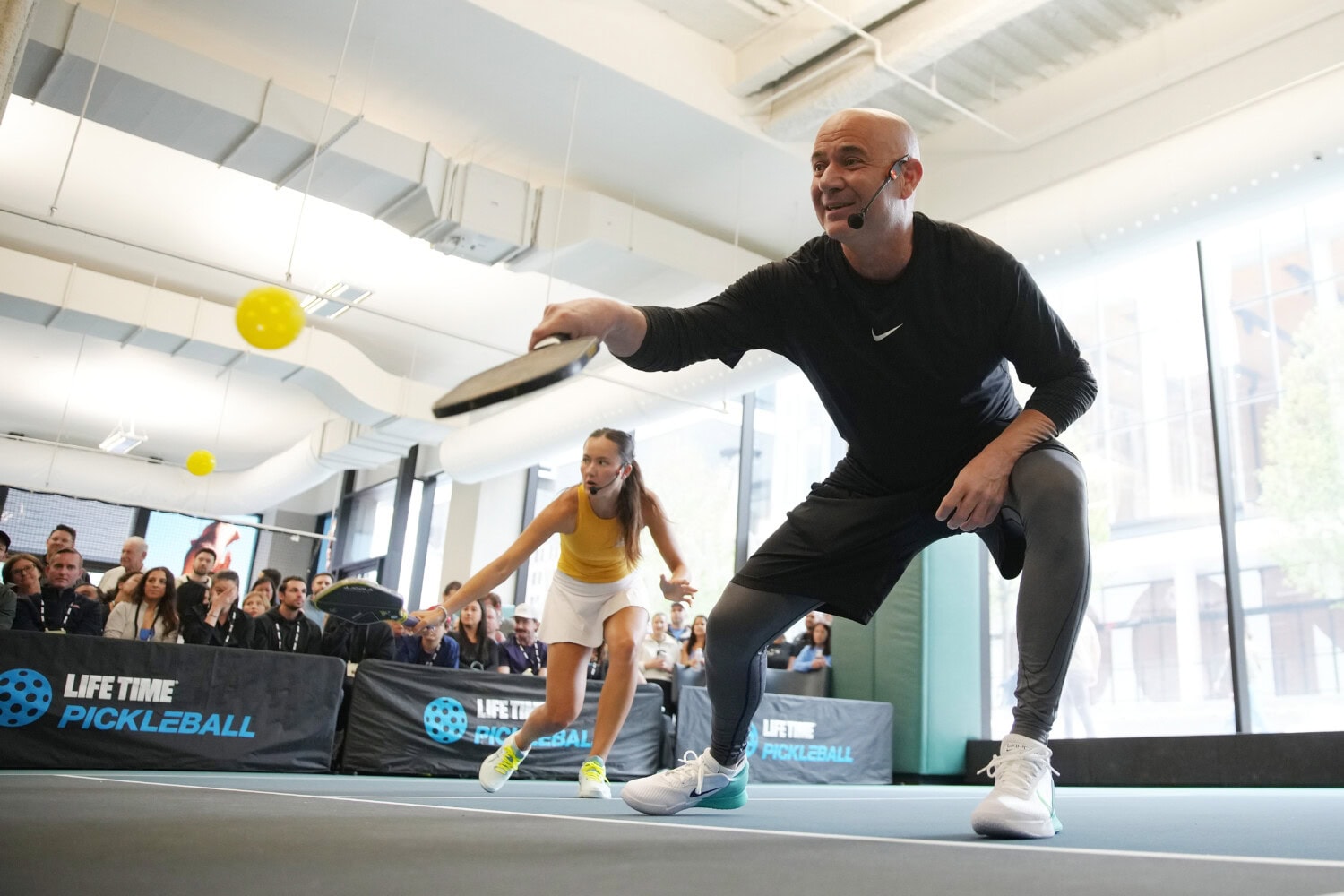The eight-time Grand Slam title winner discusses his love for and investments in pickleball, improvements to the televised product, and its coexistence with tennis.
Andre Agassi is one of the greatest tennis players of all time — a winner of eight grand slam singles titles and the coveted career grand slam. At a still fit 54 years old, he remains one of the sport’s foremost ambassadors.
Yet, unlike many tennis luminaries and advocates who have denigrated and delegitimized pickleball as some sort of inferior existential threat, Agassi is not only bullish on the sport; he has invested millions in its future. In Las Vegas back in March, promoting the Netflix Slam between Carlos Alcaraz and Rafael Nadal, Agassi spoke to Boardroom about his pickleball investments, the future of the sport, changes he’d implement to make it more TV-friendly, and why tennis and pickleball should co-exist.
“First of all, I love it. That’s obvious. It’s a great outlet in my life,” Agassi told Boardroom. “Secondly, it is a sport that, from a participation standpoint, I believe dramatically in the growth of the marketplace. There’s a low point of entry from a skill perspective, and there’s a quick and constant level of improvement. And then, there’s an equitable management of skill levels that can actually be enjoyed as a community. And people put their phones away for two hours. So I’m fully bought into the growth of the sport from a participation standpoint.”
A group led by Agassi, real estate executive and Major League Pickleball owner David Kass, and Raine Ventures purchased the DUPR pickleball ratings system in January, investing a further $8 million to further its global ambitions. Two months earlier, Agassi invested in pickleball equipment company Komodo, citing what he called a borderline obsession with the game at the time.
“While you don’t have to love something you invest in, it’s a double bottom line win if I do,” Agassi said. “With pickleball, I know it internally. I have more belief in it, and I want to support its growth.”
DUPR was a great example of that. If you can know your own pickleball rating and follow how your friends are progressing, he said, it improves the quality of play and experience when you go out on the court and play for 90 minutes or a couple of hours.
With Komodo, Agassi gravitated toward its people, a business plan that features giving back to communities, its mission, and helping build and design paddles and other equipment.

Agassi was a proponent of MLP‘s merger with the Professional Pickleball Association, the sport’s singles and doubles tour, to form the United Pickleball Association. He maintained that rising tides lift all ships and that pooling resources and partnerships will ultimately benefit the sport. He believes the jury is still out on how pickleball translates over television, which could ultimately determine its long-term commercial viability.
“The difference between participation and TV is the million-dollar question,” Agassi said.
How would he try fixing it? While he’s unsure whether this will solve the problem and it’s only a theory, Agassi would try to eliminate one partner covering both sides of the net in doubles, forcing players to stay and commit on one side of the court. He thinks seeing the game express itself in a way so those holes can’t be covered up could make it more interesting to watch.
Even at a tennis-centric event, Agassi’s enthusiasm for pickleball was palpable, and tennis should not feel threatened in the slightest.
“Pickle, it’s its own addiction, right? It’s its own outlet of physicality, its own skill level, and point of entry. And it’s a community,” Agassi said. “You can’t take four people in tennis and go feel like you’re experiencing time together. It’s not that way with pickleball. If you get four people out there, you’re immersed together from the circumference, the logistics, the distance, the proximity.
“Tennis has given me my life. I love it. Pickle is going to be part of the rest of my life.”